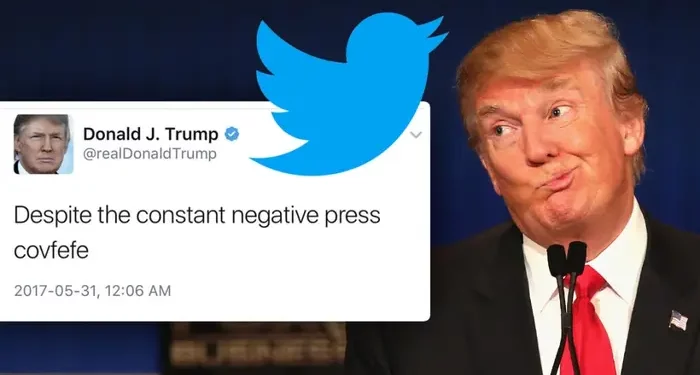Twitter has long been a platform for people to share their thoughts, opinions, and ideas. But it has become the battleground for political leaders, activists, and social media influencers in recent years. One of the platform’s most controversial accounts was the President of the United States (POTUS) official account. President Donald Trump used this account to communicate with the American people and the world. However, the account’s use became highly controversial, and Twitter eventually suspended it. This article will explore the relationship between Twitter, Team Trump, and the POTUS account.
The Rise of Twitter
In 2006, Twitter was established and became famous as a microblogging platform enabling users to share brief messages, famously called tweets. Over time, Twitter evolved into a platform for breaking news, political commentary, and real-time conversations. Twitter became a powerful tool for political leaders, activists, and influencers to reach a massive audience and share their messages.
One of the key features of Twitter is its simplicity. Users can create an account and start tweeting within minutes. This ease of use made Twitter an attractive platform for political campaigns and leaders to engage with voters and constituents. Political campaigns could quickly respond to breaking news and share their message with followers. Political leaders could use Twitter to communicate directly and in real-time with their members.
Twitter also became a platform for journalists, pundits, and media outlets to share breaking news and analysis. Twitter’s real-time nature made it an ideal venue for live events like political debates and sporting events. Twitter users could follow a live event and share their thoughts and reactions in real time.
Team Trump and Twitter
The Trump campaign recognized the power of Twitter early on and made it a central part of their communication strategy. Donald Trump was an active Twitter user long before he ran for President. Trump used Twitter to share his opinions on various topics, from politics to pop culture.
During the 2016 presidential campaign, Team Trump used Twitter extensively to reach voters and drive engagement. They used Twitter to share breaking news, respond to opponents, and mobilize supporters. Trump was an active Twitter user throughout the campaign, using the platform to bypass traditional media outlets and reach voters directly.
After Trump’s victory in the 2016 election, his team continued to use Twitter to communicate with the American people. The POTUS account became the primary channel for the President to share his thoughts and opinions on various topics. Trump’s tweets often generated controversy and outrage, but they also drove engagement and kept the President at the center of the national conversation.
The Controversy Surrounding the POTUS Account
As Trump’s use of Twitter became more controversial, there were growing calls for Twitter to take action. Trump’s tweets were often divisive and inflammatory, and some argued that they violated Twitter’s terms of service. There were also concerns that Trump’s tweets could incite violence or lead to diplomatic incidents.
Twitter faced a tricky balancing act. On the one hand, the platform was committed to free speech and allowing users to express themselves. On the other hand, there were concerns that Trump’s tweets were harmful and could damage the platform’s reputation.
In 2020, Twitter began to take action against Trump’s tweets. The platform started to label some of Trump’s tweets with warnings and fact-checks. Twitter also began to suspend or restrict some of Trump’s tweets that violated its policies. These actions sparked a backlash from Trump and his supporters, who accused Twitter of bias and censorship.
The suspension of the POTUS Account
The US Capitol was stormed on January 6, 2021, by a mob of Trump supporters, resulting in chaos and violence. In the aftermath of the Capitol riot, Twitter suspended Trump’s account (@realDonaldTrump) for violating its policies against incitement of violence. The company also stopped the official POTUS account (@POTUS) for 12 hours, believing that Trump could use the account to evade his suspension. When the rest of his account became permanent, Trump tried to use the official POTUS account to communicate with his supporters. However, Twitter swiftly removed those tweets and suspended the account permanently, citing “the risk of further incitement of violence.”
The suspension of the POTUS account was a significant step by Twitter. It showed that the company was willing to take action against even the most potent and influential users on its platform. The suspension also sparked a broader debate about the power of social media companies and their role in moderating online speech.
Morse Code and Mashable
Amid the controversy surrounding Trump’s use of Twitter, activists devised a creative way to protest. They used Morse code to message Twitter CEO Jack Dorsey, urging him to suspend Trump’s account.
The activists used a flashing light outside Twitter’s San Francisco headquarters to spell out the message “Ban Trump.” They also used the hashtag #bantrump to draw attention to their campaign. Several media outlets covered the protest, including Mashable, a popular technology and culture website.
Mashable was important in covering the controversy surrounding Trump’s use of Twitter. The website published numerous articles and opinion pieces about the topic, providing a platform for various viewpoints. Mashable also covered the broader debate about the role of social media in politics and society.
Conclusion
In conclusion, the relationship between Twitter, Team Trump, and the POTUS account was among the most controversial and consequential in social media and politics. Twitter provided a platform for political leaders and activists to engage with voters and constituents but also presented challenges and risks.
The controversy surrounding Trump’s use of Twitter showed that social media companies significantly impact public discourse and political debate. Twitter’s decision to suspend the POTUS account highlighted the need for responsible moderation of online speech and the balance between free speech and preventing harm.
As social media plays an increasingly important role in politics and society, platforms must develop effective policies and tools to address harmful content and protect public discourse. The legacy of Twitter, Team Trump, and the POTUS account will serve as a lesson for future generations about the power and responsibility of social media in shaping public discourse and political debate.

















